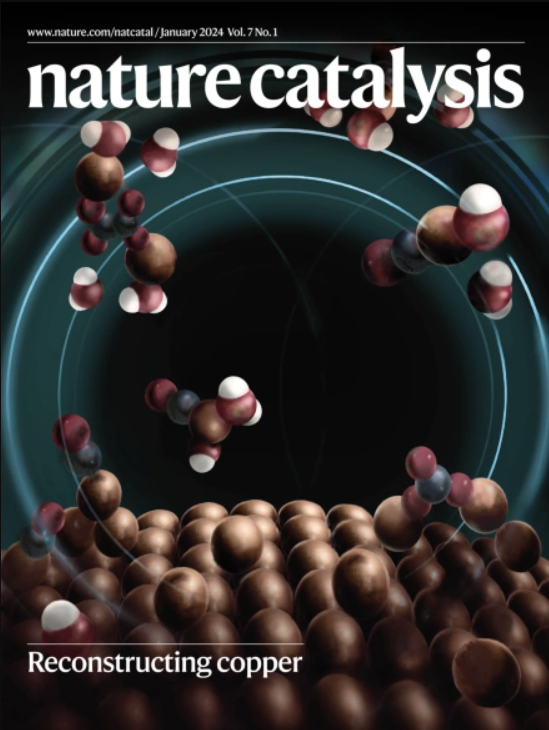量子计算用于更快的酶发现和工程
IF 44.6
1区 化学
Q1 CHEMISTRY, PHYSICAL
引用次数: 0
摘要
量子计算利用量子力学的独特原理,为生物催化和相关学科提供了变革的潜力。与经典算法相比,量子算法为量子计算机提供了巨大的加速,使其适合于解决计算上具有挑战性的问题,如模拟多体生物分子系统或酶催化的化学反应。然而,目前的量子硬件受到噪声、有限的量子比特相干性和高错误率的限制,限制了其模拟复杂生化现象的能力。在这里,我们将探讨量子计算的快速发展前景及其在生物催化剂的发现和合理工程中的未来应用。我们确定了量子算法可以超越经典限制的关键领域,包括基于量子化学的生物催化剂设计,具有增强的催化活性或选择性,新型酶的并行挖掘,精确的祖先序列重建以及组合硅蛋白进化。克服目前的硬件限制,可能会在基础酶学和工业生物处理方面带来革命性的进步。量子计算是一项很有前途的技术,可以解决传统计算机需要大量时间才能解决的复杂挑战。本展望讨论了量子计算的现状及其在酶工程和生物催化中的可能应用。本文章由计算机程序翻译,如有差异,请以英文原文为准。

Quantum computing for faster enzyme discovery and engineering
Quantum computing, by leveraging the unique principles of quantum mechanics, offers transformative potential for biocatalysis and related disciplines. Compared to classical algorithms, quantum algorithms deliver immense acceleration to quantum computers, making them suited for tackling computationally challenging problems such as simulating many-body biomolecular systems or enzyme-catalysed chemical reactions. However, current quantum hardware is constrained by noise, limited qubit coherence and high error rates, restricting its capacity to model complex biochemical phenomena. Here we explore the rapidly advancing landscape of quantum computing and its future applications in the discovery and rational engineering of biocatalysts. We identify key areas where quantum algorithms could surpass classical limitations, including the quantum chemistry-based design of biocatalysts with enhanced catalytic activity or selectivity, parallelized mining of novel enzymes, accurate ancestral sequence reconstruction, and combinatorial in silico protein evolution. Overcoming current hardware limitations could unlock transformative advances in both fundamental enzymology and industrial bioprocessing. Quantum computing is a promising technology to solve complex challenges that would take classical computers an impractical amount of time. This Perspective discusses the current state of quantum computing and possible applications in enzyme engineering and biocatalysis.
求助全文
通过发布文献求助,成功后即可免费获取论文全文。
去求助
来源期刊

Nature Catalysis
Chemical Engineering-Bioengineering
CiteScore
52.10
自引率
1.10%
发文量
140
期刊介绍:
Nature Catalysis serves as a platform for researchers across chemistry and related fields, focusing on homogeneous catalysis, heterogeneous catalysis, and biocatalysts, encompassing both fundamental and applied studies. With a particular emphasis on advancing sustainable industries and processes, the journal provides comprehensive coverage of catalysis research, appealing to scientists, engineers, and researchers in academia and industry.
Maintaining the high standards of the Nature brand, Nature Catalysis boasts a dedicated team of professional editors, rigorous peer-review processes, and swift publication times, ensuring editorial independence and quality. The journal publishes work spanning heterogeneous catalysis, homogeneous catalysis, and biocatalysis, covering areas such as catalytic synthesis, mechanisms, characterization, computational studies, nanoparticle catalysis, electrocatalysis, photocatalysis, environmental catalysis, asymmetric catalysis, and various forms of organocatalysis.
 求助内容:
求助内容: 应助结果提醒方式:
应助结果提醒方式:


